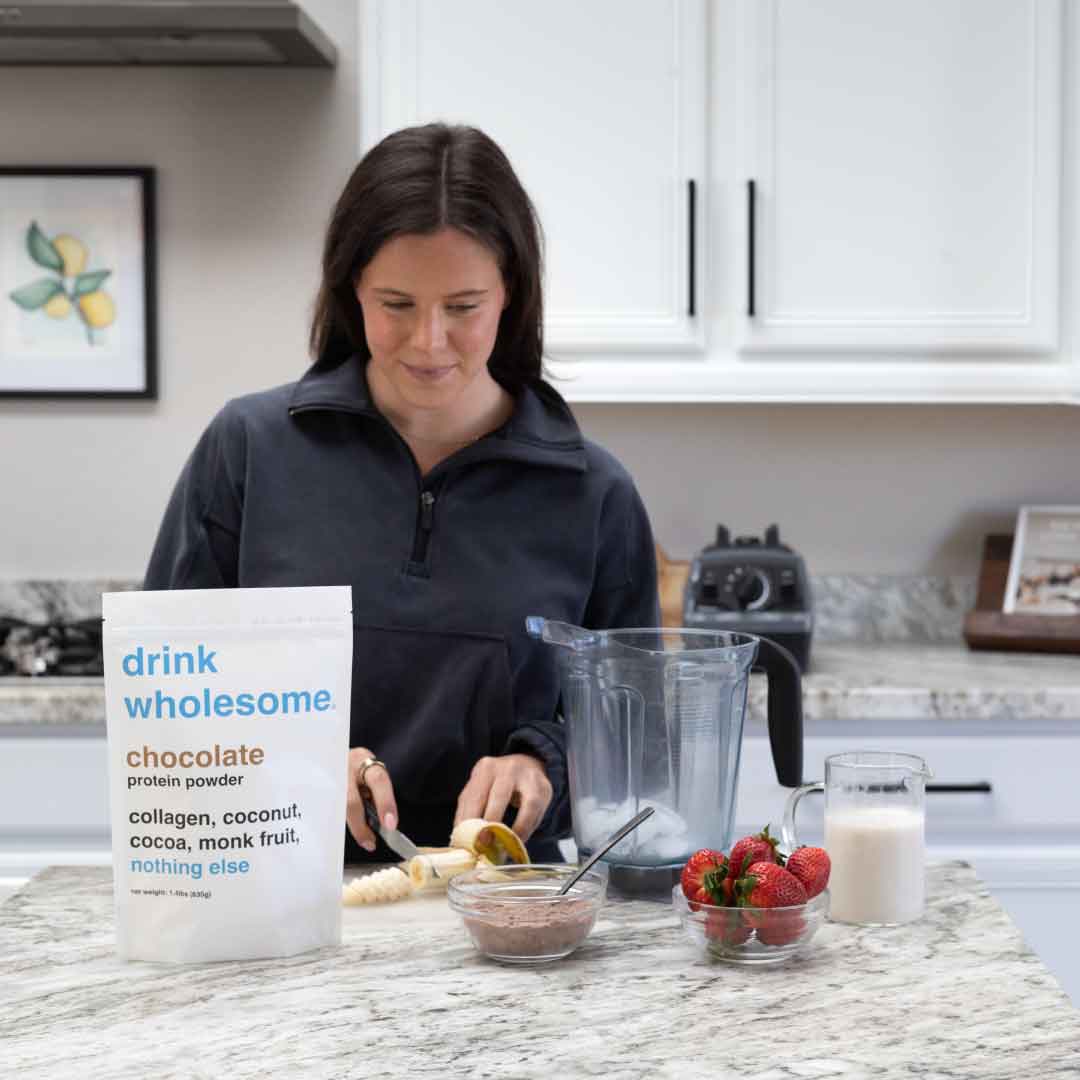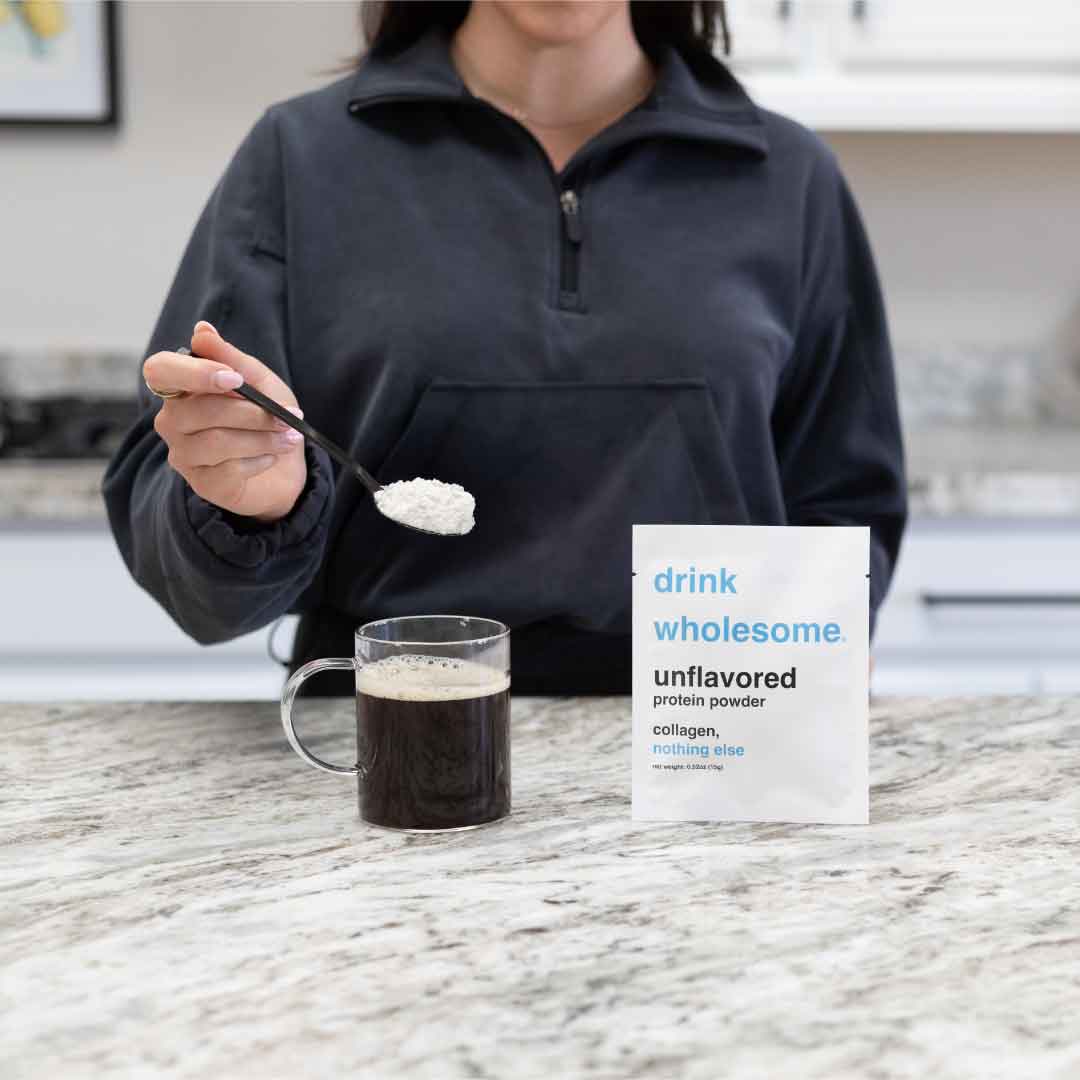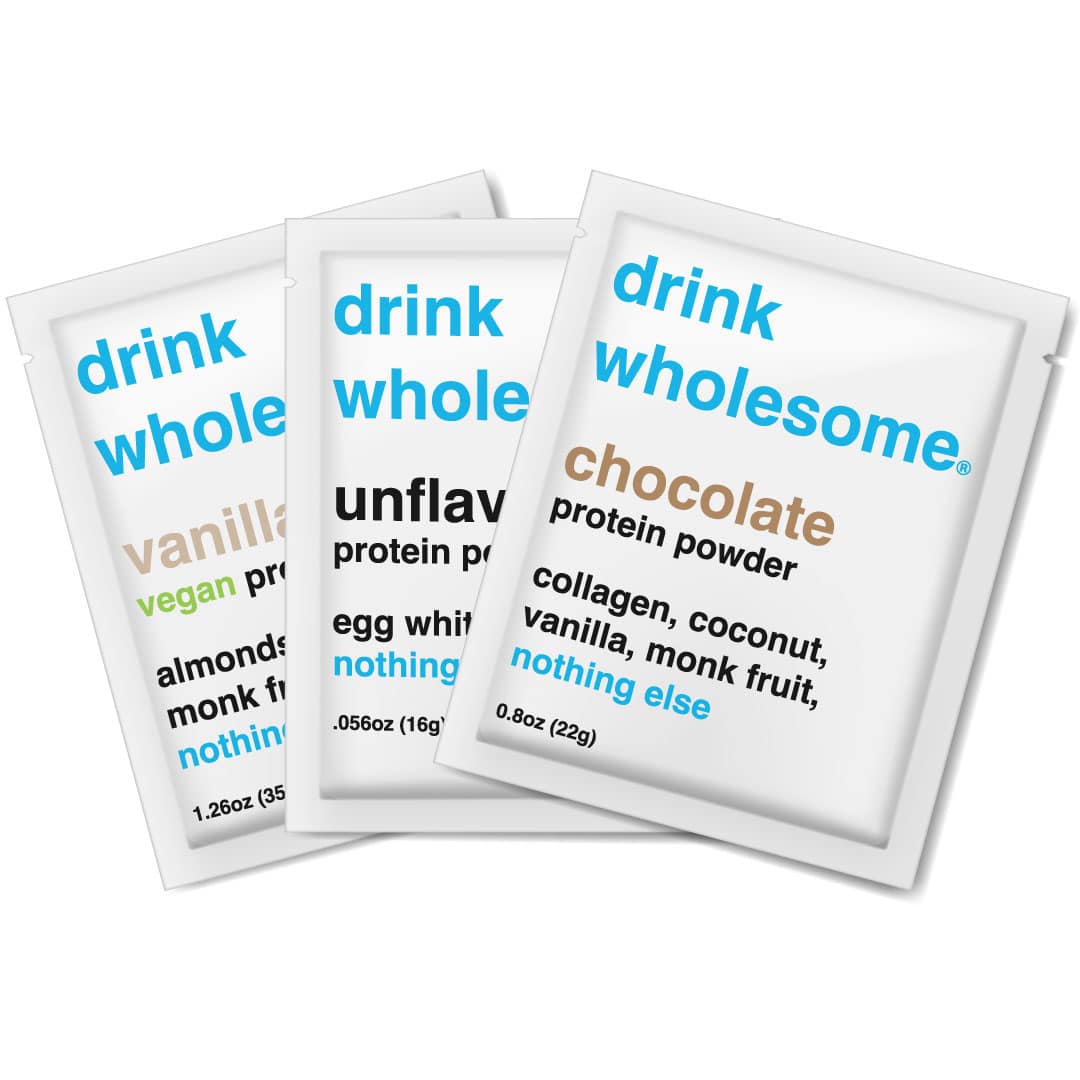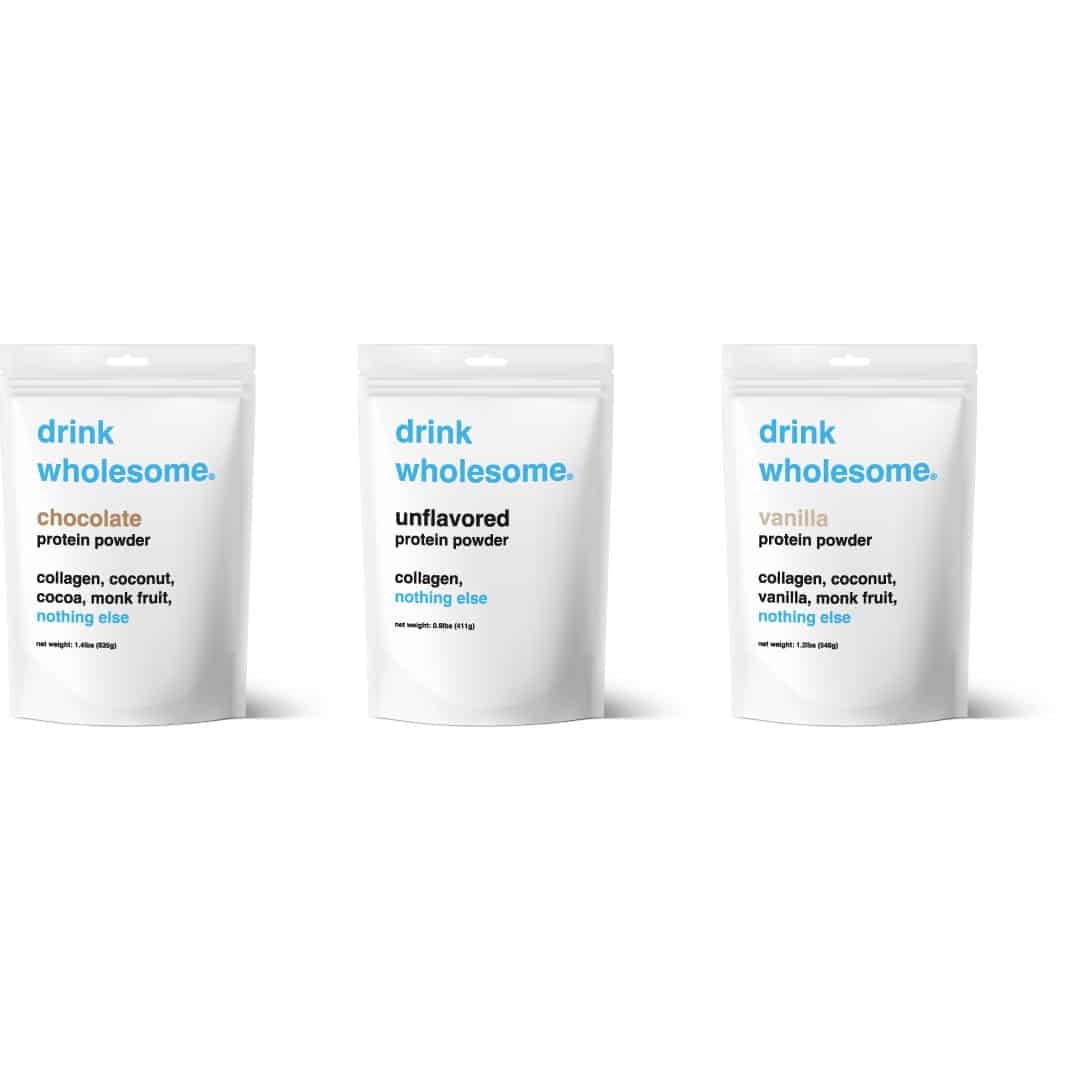Why use collagen protein powder?
Collagen protein powder, in addition to being a convenient source of dietary protein, comes with a number of other health benefits. Research has shown that regularly supplementing your diet with collagen can support the health of your bones, joints, nails, and skin. For this reason, collagen supplements have exploded in popularity in the health, wellness, and beauty industries.
Note that just because collagen is good for your nails and skin does not mean it is not also a way to increase your dietary protein intake. Although other protein sources like eggs and dairy may have certain nutritional advantages, collagen can still help you build and maintain muscle mass. In fact, if you are eating a balanced diet, supplementing your protein intake with collagen protein powder is not a less effective way to achieve body composition changes than using any other type of protein powder.
How do you use collagen protein powder?
Flavored collagen protein powders and can be mixed with water, milk, or a milk alternative to make a protein shake. They can also be added to smoothies, oatmeal, and other recipes for an easy protein boost.
Unflavored collagen protein powder is particularly versatile, and can be incorporated into almost any recipe, including savory dishes like soups. You can also add unflavored collagen protein powder to hot drinks like coffee.
What is the best collagen protein powder?
Not all collagen protein powders are created equal. Many options, especially flavored ones, contain added emulsifiers, thickeners, and other additives that can cause painful side effects and long term health issues. Here are the top ingredients to avoid when buying collagen protein powder, or any protein powder for that matter:
Avoid food additives
Many protein powders are full of additives like emulsifiers and thickeners, which can not only upset your stomach (more about this later), but also alter the composition and function of your gut microbiome – the collection of microorganisms living in your gut. This can lead to gut dysbiosis, or an imbalance in your gut microbiota. Gut dysbiosis is a leading driver of inflammation and contributes to wide range of chronic diseases, including inflammatory bowel disease (IBD), obesity, type 1 diabetes, and colorectal cancer.
Avoid artificial sweeteners
Of all the food additives to avoid, artificial sweeteners like sucralose are at the top of the list. First of all, several studies have shown that they can increase cravings toward sugary and sweet foods, which can lead to binging and feelings of withdrawal. If you are trying to lose weight, you are probably better off just eating sugar. Research has also associated artificial sweeteners with a higher risk of glucose intolerance, which is a precursor for pre-diabetes and diabetes, and serious disruptions to your gut microbiome.
In summary, the best collagen protein powder is free from food additives, especially artificial sweeteners. As a rule of thumb, prioritize powders made with a short list of simple ingredients: the shorter and simpler the better.









